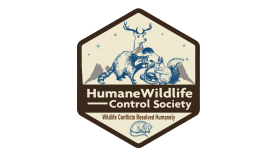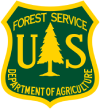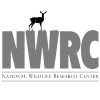Humane Wildlife Control in Jacksonville, FL
The Humane Wildlife Control Society recommends non-invasive solutions to resolve human-wildlife conflicts. This includes:
Determining if the issue needs to be addressed at all
Opting for preventative measures first
Opting for wildlife exclusion as opposed to trapping
If trapping is the only way to solve the problem do so humanely
The Humane Wildlife Control Society screens candidates prior to recommendation. Our process requires any company we recommend to meet the following criteria:
Is properly licensed in Florida for wildlife control
Carries appropriate business licenses and insurance
Complies with all Florida laws and regulations for wildlife control
Adheres to the humane principles listed above.
In Jacksonville, Florida we recommend Humane Wildlife Removal Jacksonville for professional wildlife control services. This is a private company that charges for their services.
Contact Information:
Jacksonville Wildlife Pest Control
904-639-6988
If you have any wildlife issues that can be handled by the state government agency for free, the Florida Wildlife Commission can help.
State Contact Information: 888-404-3922
The State Department of Agriculture may also be able to address your wildlife problem for no charge.
USDA Contact Information: (800) 435-7352
Humane Wildlife Control in Jacksonville: A Necessary Approach The Problem with Traditional Wildlife Removal A Science-Based, Humane Solution Thorough Inspections: Identifying how and why wildlife is entering properties. Raccoons and opossums denning in attics and crawl spaces Protecting Jacksonville’s Wildlife and Community For more information on humane wildlife control in Jacksonville, contact the Humane Wildlife Control Society today.
Jacksonville’s diverse ecosystems, from coastal wetlands to suburban neighborhoods, support a wide range of wildlife, including raccoons, opossums, bats, squirrels, and armadillos. As human development expands, interactions between people and wildlife have become more frequent. Without proper management, these encounters can lead to property damage, safety concerns, and unnecessary harm to animals. Humane wildlife control is the only effective and ethical solution to these conflicts.
Many outdated wildlife control methods, such as trapping and relocation, fail to address the root cause of the problem. When an animal is removed, another often moves in to take its place. Relocated animals struggle to survive in unfamiliar areas, and lethal control methods such as poisoning can have unintended consequences, harming pets, native wildlife, and the environment.
Humane wildlife control focuses on prevention and coexistence rather than short-term fixes. This approach includes:
Exclusion Techniques: Sealing entry points and using one-way doors to allow animals to leave without re-entry.
Habitat Modification: Removing attractants like unsecured garbage, pet food, and water sources.
Education and Prevention: Teaching residents how to prevent future conflicts through responsible property management.
Common Wildlife Concerns in Jacksonville
Jacksonville’s climate and geography make it an active zone for wildlife. Common challenges include:
Bats roosting in homes and businesses, requiring legal exclusion methods
Squirrels chewing through roofs and causing structural damage
Armadillos digging burrows that threaten foundations and landscaping
Snakes seeking shelter in residential areas during seasonal changes
Each of these issues requires a humane, long-term solution rather than reactionary removal.
Wildlife is a vital part of Jacksonville’s natural environment. Ethical wildlife management ensures public safety while preserving local ecosystems. By following humane control practices, residents can reduce conflicts and promote coexistence with native species.







